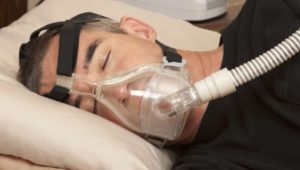Joints are designed to move. In the jaw’s case, it is meant to open and close (and move side-to-side a little bit). These movements allow you to perform basic functions such as biting, chewing, talking, and yawning. Thus, it is not surprising that a locked jaw can be really distressing. Its debilitating nature can be quite overwhelming. But why does your jaw lock in the first place? And how do you keep your jaw from locking? In this guide, you will learn about the nature of the condition and how to fix lock jaw immediately.
What is a locked jaw?
A quick internet search on the word lock jaw (or lockjaw) will show you along list of “tetanus” results, which doesn’t really help in the confusion. Tetanus is a bacterial disease that affects the nervous system. It is contracted through cuts and wounds that become contaminated, one of its many symptoms is lockjaw. In the real world however, tetanus is not the most common cause for jaw lock or lockjaw. While tetanus was prevalent in the past, it is relatively rare and easily preventable through modern medicines.
The jaw joint (temporomandibular joint or TMJ) is a complex joint. It’s made up of multiple parts, such as the cartilage (articular disk) that sits between two pieces of bone and allows the joint to move, the ligaments which hold the disc in place, and tissues and muscles that surround and support the joint. If these ligaments get torn, there’s a good chance the disc can slip out of place.
You don’t necessarily feel pain if the articular disc gets displaced. The clicking and popping sound usually comes from discs going out of place and the remaining ligaments trying to pull it back. In some cases, you may experience a temporary “catch” where your jaw gets stuck for a moment, but then gets back to its place later. However, there are times when the jaw doesn’t get pulled back. This causes the jaw to get stuck in either an open or closed position.
Common causes of lock jaw
Lockjaw is most commonly caused by muscle spasms, a strain, or temporary dislocation of the jaw joint (temporomandibular joint or TMJ). The thing is, it often doesn’t happen instantly. Rather, it is caused by a buildup of several factors, particularly long-standing muscle strain and wear and tear of the TMJ.
Other causes of jaw locking include the following:
- Inflammation – swelling caused by trauma
- Wisdom teeth – erupting with poor positioning of wisdom teeth that creates swelling and infection
- Dislocated TMJ – ligaments of temporomandibular joint stretched too far, causing it to pop out of its socket
Two types of lock jaw
There are two types of lock jaw: closed lock and open lock. If you cannot open your mouth wide enough to fit at least two fingers, it’s called closed lock. When the mouth is held open and can’t be closed fully, that’s an open lock. There’s also a term called trismus, which is a medical term used to refer to restricted jaw movement or lockjaw. It was initially used to refer to jaw lock in tetanus, but has since been used to refer to bilateral restriction to opening the mouth from any cause.
Generally, lockjaw is a temporary condition which eventually resolves itself on its own. However, for episodes that can last a few hours, and when you are unable to speak normally or eat anything, those few hours may seem like forever. This is even more frightening if you don’t know what’s happening or how to handle the problem.
Lockjaw can be painful, not just in the jaw area, but to the nearby parts of the jaw joint. Other common symptoms of jaw locking include:
- Jaw clicking and popping
- Earaches (or ear ringing)
- Facial pain
- Headaches
- Teeth clenching or jaw grinding
- Feeling weak in the jaw while chewing food, talking, or yawning
- Teeth (top and bottom) don’t feel they fit together
How to fix lock jaw immediately?
Lock jaw treatment depends largely on the severity of the condition, how long the episode has persisted, and its underlying causes. Here are some common treatments of jaw locking:
Massage
Start by warming up the jaw area with a heat pack or warm compress. Warm compress both sides for 10 to 15 minutes. This will help the muscles relax, increase blood flow, and reduce inflammation.
Next, use your fingers to knead your jaw area. Place your fingers just below your cheekbones. Make sure to knead gently, and use two fingers. Kneading will help stimulate and loosen the muscles in the area.
Also, use your index finger to put pressure on the mandible muscle. This muscle is found on the lower part of the jaw, along the jawline. Put pressure on it for 10 seconds and release it when you feel pain. Do this multiple times.
Use your thumbs to stretch your TMJ. Place both your thumbs on the jawline; put pressure on that area, and stretch. Try to stretch the muscle down and away from the upper jaw.
Relax and try to gently wiggle your jaw side-to-side until it feels less tense and locked.
Jaw exercises
Jaw exercises can help maintain the mobility of your jaw joint. Open and close your mouth gently by inhaling as you open your mouth slightly, and exhaling to close your mouth slowly. Do not let your teeth touch, keep everything nice and relaxed.
See your doctor
If conservative treatments don’t seem to work, then it’s best to see your doctor. Doctors may prescribe painkillers, anti-inflammatory medications (Ibuprofen or Naproxen), and muscle relaxants.
In some rare cases, doctors may use relaxants in the form of injections to further help muscles and ligaments loosen up.
Some people with a bad form of locked jaw may need transcutaneous electrical nerve stimulation (TENS) from a physiotherapist to effectively relax the jaw muscles and surrounding tissues.
Joint flushing (arthrocentesis), surgical removal of sticky adhesions (or other structures), and even BOTOX are sometimes used to fix lock jaw immediately, especially for the worst cases of jaw locking.


























